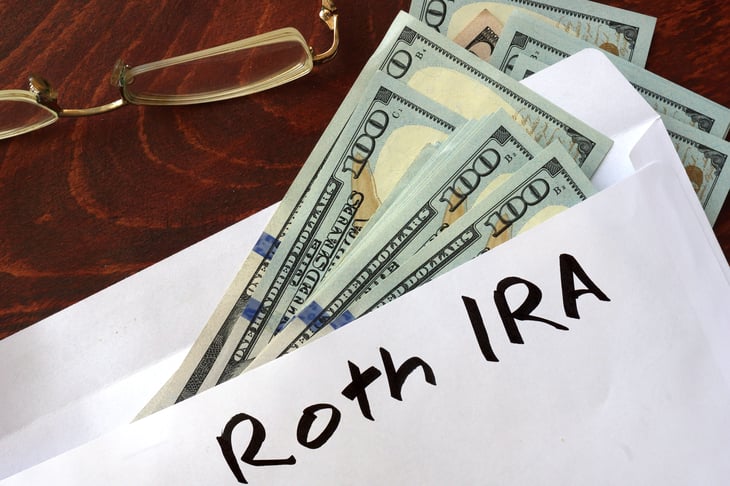
The Tax Cuts and Jobs Act of 2017 changed a lot of rules, but one thing remains the same: It is exceedingly difficult to evade the long arm of the taxman.
That’s even true of Social Security benefits. Many people know that if you work while collecting benefits before reaching your full retirement age, it can result in a permanently reduced benefit. But earn too much money — even by simply making withdrawals from some types of retirement plans — and you also can end up owing income taxes on your Social Security benefits.
According to the Social Security Administration (SSA):
“Some of you have to pay federal income taxes on your Social Security benefits. This usually happens only if you have other substantial income in addition to your benefits (such as wages, self-employment, interest, dividends and other taxable income that must be reported on your tax return).”
Whether you owe taxes on these benefits depends on your “combined income.” The SSA defines this as the sum of:
- Your adjusted gross income
- Your nontaxable interest
- One-half of your Social Security benefits
If you file an individual tax return and your combined income is between $25,000 and $34,000, you may owe income taxes on up to 50% of your Social Security benefits. Earn more than that, and up to 85% of your benefits could be subject to taxes.
If you file a joint return and your combined income is between $32,000 and $44,000, you may owe taxes on up to 50% of your benefits. Earn more than that, and up to 85% could be taxable.
Fortunately, there are ways to reduce your income and reduce — or even avoid paying — taxes owed on your Social Security benefits. They include:
1. Delay collecting your benefits

Choosing to delay collecting Social Security benefits until your full retirement age — or even beyond — might be the simplest way to avoid paying taxes on your Social Security benefits, at least for a while.
Waiting to file for benefits also means you will get a bigger check each month once you finally do start collecting.
For more on the pros and cons of delaying Social Security benefits, check out:
2. Don’t work, or work less, in retirement

Every dollar you earn doing part-time work can push you a little closer to owing taxes on your Social Security benefits. Of course, it’s silly to quit a job you enjoy — or need — simply to trim your tax bill.
But if the job is a low-wage pain in the neck that only provides a modest financial benefit, you might be better off — at least emotionally — quitting so that you can reduce your income for the tradeoff of lowering or eliminating taxes on your Social Security benefits.
3. Avoid municipal bonds

A lot of people turn to municipal bonds as a way to lower their tax bill. Interest earned from these types of bonds typically is not subject to income taxes.
However, municipal bond interest is included in the formula that determines whether you will pay taxes on your Social Security benefits.
“When it comes to taxing Social Security benefits, tax-free municipal bond interest can become a ‘stealth tax’ that quietly eats away at income. Bondholders should be aware of these potential tax consequences when deciding between tax-free muni bonds and other kinds of fixed-income investments.”
Consider consulting with a financial adviser to help you determine whether municipal bond holdings might cause such trouble for you.
4. Withdraw money from a Roth account

If you have socked away money in a traditional IRA or 401(k) plan, expect Uncle Sam to come calling during your retirement. After years of deferring taxes on those contributions, the bill is due once you begin making withdrawals on the money.
Additionally, these withdrawals will boost your combined income, which could make the difference in whether or to what extent your benefits are taxed.
One way to avoid such taxation is to withdraw only as much money as the government obligates you to do each year — known as the required minimum distribution (RMD) — and to take any additional cash that you need from a Roth IRA or Roth 401(k) plan, if you have one. No taxes are due on Roth distributions, and these withdrawals will not impact your combined income.
However, there are many good reasons not to withdraw money from a Roth account — including that RMDs do not apply to Roth IRAs.
So, consult with a tax professional before making this decision. A pro can help you decide whether withdrawing money from a Roth account — or making a combination of withdrawals from both a Roth and a traditional account — is the best strategy for you.
5. Distribute your RMD to a charity

Giving money to charity is a great way to help make the world a better place. While doing good for others, you can also lower the odds that your Social Security benefit will be taxed.
If you are at least 70½, you can take up to $100,000 of your annual required minimum distribution, give it to a charity and avoid income taxes on the money. This is known as a qualified charitable distribution.
Since the money is not taxed, it will not boost your adjusted gross income. But you need to be aware of some key rules.
For starters, the money must be directed to a qualified 501(c)(3) organization.
Also, you cannot use funds from a 401(k) or other employer-sponsored plan to make this type of distribution. There are ways around this — such as rolling over money to an IRA — but again, this strategy should not be used without consulting your tax adviser.